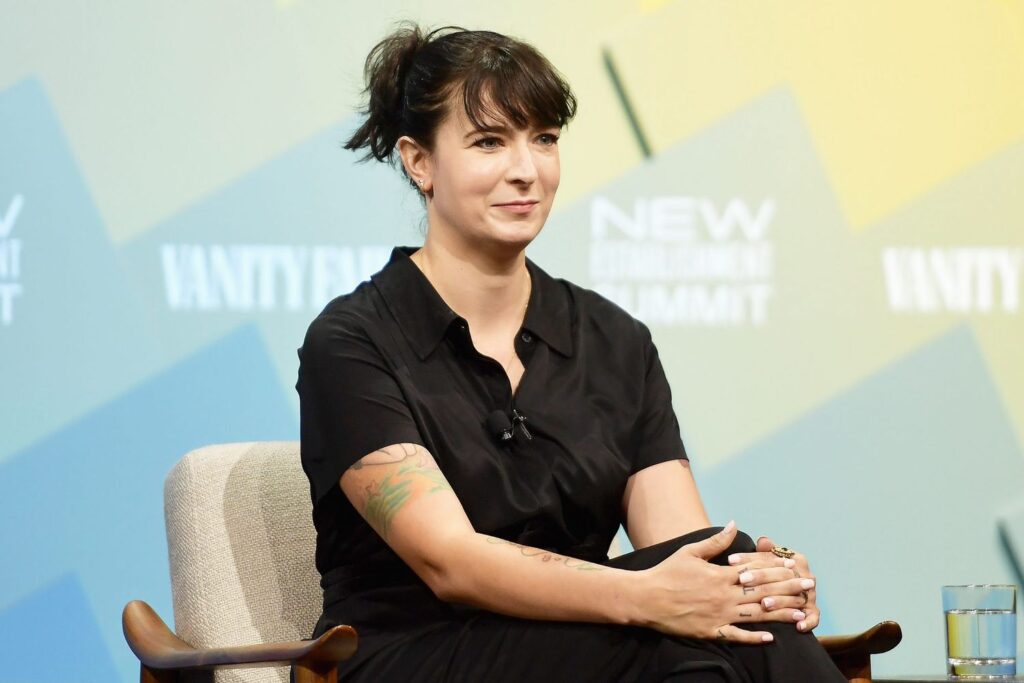Screenwriting is a challenging and competitive field, and breaking into the industry can feel like a daunting task. However, many successful people have traveled this road before and have valuable insights to share for screenwriters on breaking into the industry. In this blog post, we will hear from a number of established screenwriters on their experiences, tips, and advice for aspiring writers looking to make a name for themselves in the world of film and television. From honing your craft to networking and finding representation, these writers will provide a wealth of knowledge on what it takes to succeed in the industry. So, if you’re ready to embark on your own journey to become a successful screenwriter, read on for inspiration and guidance.
Screenwriters on Breaking into The Industry: Is Scriptwriting a Good Career?
Screenwriting can be a rewarding career, but it can also be hard and competitive. While some writers enjoy success and recognition early in their careers, others may struggle for years before finally achieving their goals.
One of the biggest advantages of a career in screenwriting is the opportunity to tell stories and bring your ideas to life on a large scale. Screenwriting allows writers to use their creativity to entertain, educate, and inspire audiences around the world. In addition, screenwriting can also be a lucrative career, with successful writers earning significant sums for their work.
However, breaking into the industry can be difficult and requires a lot of hard work and perseverance. Competition for screenwriting jobs is fierce, and many aspiring writers must navigate a complex and ever-changing landscape of agents, producers, and studio executives. In addition, screenwriting is often a freelance career, which means that writers may experience periods of uncertainty and instability.
Despite these challenges, many writers find that the rewards of a career in screenwriting are worth the effort. Whether you are driven by a passion for storytelling, a desire to make a difference, or the thrill of creating something new, screenwriting can be a fulfilling and rewarding career. Ultimately, the decision of whether or not screenwriting is a good career depends on individual goals, interests, and priorities.
Screenwriters on Breaking into The Industry: Should I Become a Screenwriter?
Becoming a screenwriter can be a fulfilling career, but it’s not for everyone. Before making a decision to pursue screenwriting, it’s important to consider your interests, skills, and goals, as well as the challenges and demands of the industry.
If you have a passion for storytelling and enjoy writing, then screenwriting may be a good fit for you. Screenwriters have the opportunity to bring their ideas to life and create compelling stories that can entertain, educate, and inspire audiences around the world.
However, becoming a successful screenwriter requires a lot of hard work and perseverance. The industry is competitive, and breaking in can be difficult. Screenwriting is also often a freelance career, which means that writers may experience periods of uncertainty and instability.
In addition, screenwriting can also be a challenging and demanding profession, requiring strong writing skills, the ability to handle criticism and rejection, and the resilience to bounce back from setbacks. It’s important to be honest with yourself about your strengths and weaknesses, and to be prepared to work hard to develop your craft and build a successful career.
Ultimately, the decision of whether or not to become a screenwriter depends on individual goals, interests, and priorities. If you have a passion for storytelling, a drive to succeed, and a willingness to work hard, then screenwriting may be a rewarding and fulfilling career choice.
Screenwriters on Breaking into The Industry: How Hard is it to Break into Screenwriting?
Breaking into screenwriting can be difficult and cutthroat. The industry is filled with talented writers, and it can be difficult to stand out and get your work noticed. In addition, the film and television industries are constantly evolving, and it can be difficult to keep up with changes in technology, audience preferences, and industry practices.
However, with hard work, perseverance, and a willingness to learn and grow, it is possible to break into screenwriting. Many successful screenwriters have faced numerous rejections and setbacks before finally finding success, and it is important to be prepared for the ups and downs of a career in the industry.
Some key factors that can help you break into screenwriting include developing your craft, networking and building relationships, finding representation, and making connections through film festivals and contests. It’s also important to be proactive in seeking out opportunities and to be open to feedback and constructive criticism.
Breaking into screenwriting is not easy, but it is possible with determination, hard work, and a commitment to improving your skills and growing as a writer.
Screenwriters on Breaking into The Industry: How do I Become a Screenwriter with No Experience?
Becoming a screenwriter with no experience can be arduous but wonderful journey. Here are some steps you can take to start building your career:
- Write, write, write: The most important thing you can do to become a screenwriter is to write. Start by writing short scripts, scenes, and character sketches. As you gain experience, you can start working on longer pieces, such as feature-length screenplays.
- Study the craft: Read books, take online courses, and attend workshops to learn about screenwriting techniques, structure, and style. Familiarize yourself with industry standards and familiarize yourself with different genres and formats.
- Seek feedback: Share your work with friends, family, and other writers for feedback and constructive criticism. Join a writing group or online community where you can receive support and guidance from more experienced writers.
- Network: Attend film festivals, writing conferences, and industry events to meet other writers, producers, and industry professionals. Building relationships in the industry can be a valuable way to make connections and learn about new opportunities.
- Get representation: Consider finding a literary agent or manager who can help you find work and represent your interests.
- Keep writing: Finally, continue to write, refine your skills, and build your portfolio. The more you write, the better your chances of finding success as a screenwriter.
Remember, becoming a screenwriter takes time, hard work, and perseverance. But if you have a passion for storytelling and are willing to put in the effort, you can build a successful career in the industry.
Screenwriters on Breaking into The Industry: How to Become a TV Writer
Here are some steps you can take to start building your career as a TV writer:
- Familiarize yourself with the conventions and structure of television writing by reading scripts, watching shows, and taking online courses.
- Write a few spec scripts for popular television shows to demonstrate your writing skills and understanding of the format.
- Share your work with other writers, industry professionals, or writing groups for constructive criticism and feedback.
- Attend film festivals, writing conferences, and industry events to meet other writers, producers, and executives. Building relationships in the industry can help you learn about new opportunities and make connections.
- Consider finding a literary agent or manager who can help you find work and represent your interests.
- Continuously write and refine your skills. The more you write, the stronger your portfolio will become, and the better your chances of landing a writing job.
- Stay informed about the current trends, styles, and conventions in the television industry to help keep your writing fresh and relevant.
- Be open to collaboration and be willing to make changes to your work based on feedback and industry standards.
Breaking into the television writing industry can be a long and difficult journey, but with dedication, hard work, and a commitment to improving your skills, you can make a name for yourself in the industry.
Screenwriters on Breaking into The Industry: The Importance of Developing Your Craft
The first step to becoming a successful screenwriter is to hone your craft. This means not only writing regularly, but also reading and studying the works of other writers, learning the mechanics of storytelling, and understanding the industry standards for script format and content. To be competitive, it’s important to continually improve your writing skills, both technically and creatively.
In this section, our featured screenwriters will share their thoughts on the importance of developing your craft and offer tips for how to grow as a writer. They’ll discuss the importance of writing regularly, seeking feedback from others, and pushing yourself to try new things. Whether you’re just starting out or looking to take your writing to the next level, these insights will help you on your journey to becoming a successful screenwriter.
Aaron Sorkin

Aaron Sorkin is known for his sharp, witty writing and insightful character development. Here are a few quotes from him on the importance of developing your craft as a writer:
“Write a lot, finish what you write, and then rewrite.” – Aaron Sorkin
“The first rule of writing is that if you do it with enough assurance and confidence, you’re allowing your readers to be entertained. When you’re entertaining, you can get away with anything.” – Aaron Sorkin
In terms of seeking feedback, Sorkin has said: “I don’t think it’s possible to become a better writer without showing your work to other people and getting their thoughts.”
Sorkin also believes in the importance of pushing yourself to try new things and expand your horizons as a writer. He has said, “You’re not going to do your best work if you’re not taking chances.”
Diablo Cody

Diablo Cody is a well-known screenwriter known for her unique voice and unconventional storytelling style. Here are a few quotes from her on the importance of developing your craft as a writer:
“Write every day. If you don’t have time to write every day, you don’t have time to be a writer.” – Diablo Cody
“The only way to become a better writer is to write more, read more, and always be open to constructive criticism.” – Diablo Cody
In terms of seeking feedback, Cody has said: “Get a writing partner, join a writing group, or attend writing workshops to get an outside perspective on your work.”
Cody also believes in the importance of pushing yourself to try new things and taking risks in your writing. She has said, “Don’t be afraid to take chances and write outside of your comfort zone.”
Shane Black

Shane Black is a well-known screenwriter and director known for his witty, action-packed scripts. Here are a few quotes from him on the importance of developing your craft as a writer:
“Write every day. No excuses. Finish what you start.” – Shane Black
“Write what you know, and then write something else. Don’t be afraid to stretch yourself and try new things.” – Shane Black
In terms of seeking feedback, Black has said: “Get as many eyes on your script as possible, and be open to constructive criticism. It can only make you a better writer.”
Black also emphasizes the importance of pushing yourself and taking risks in your writing. He has said, “Don’t be afraid to try new things and explore different genres. The more diverse your writing experience, the better.”
Paul Thomas Anderson

Paul Thomas Anderson is a well-known filmmaker and screenwriter known for his intricate, character-driven stories. Here are a few quotes from him on the importance of developing your craft as a writer:
“Write every day, even if it’s just for 15 minutes. Consistency is key.” – Paul Thomas Anderson
“Write what you know, but also don’t be afraid to write what you don’t know. The unknown can be a great source of inspiration.” – Paul Thomas Anderson
In terms of seeking feedback, Anderson has said: “Get as many opinions on your work as possible, but ultimately trust your own instincts. You know what you want to say better than anyone else.”
Anderson also emphasizes the importance of pushing yourself and growing as a writer. He has said, “Challenge yourself to try new things and take risks in your writing. You never know what you’re capable of until you try.”
Nancy Meyers

Nancy Meyers is a well-known screenwriter and director known for her witty, romantic comedies. Here are a few quotes from her on the importance of developing your craft as a writer:
“Write every day. It’s the only way to get better.” – Nancy Meyers
“Write what you know, but also don’t be afraid to write what you don’t know. Research can be a great source of inspiration.” – Nancy Meyers
In terms of seeking feedback, Meyers has said: “Get as many opinions on your work as possible, but ultimately trust your own instincts. You know what you want to say better than anyone else.”
Meyers also emphasizes the importance of pushing yourself and growing as a writer. She has said, “Challenge yourself to try new things and take risks in your writing. You never know what you’re capable of until you try.”
Screenwriters on Breaking into The Industry: Networking and Building Relationships in The Industry
Networking and building relationships in the film industry is crucial for screenwriters who are looking to break into the business. Making connections with producers, agents, and other industry professionals can open up opportunities for your work to be read and potentially produced.
One way to network and build relationships is to attend film festivals and industry events. This gives you the chance to meet and connect with other filmmakers, producers, and industry professionals. You can also attend workshops and panels, which can provide valuable insight into the industry and help you make new connections.
Another way to build relationships is to join a writer’s group or a professional organization such as the Writers Guild of America. These organizations offer resources, support, and networking opportunities for writers. You can also attend events and meet other writers and industry professionals who can help you further your career.
Writing competitions are also a great way to network and build relationships in the industry. These contests provide exposure for your work and can help you get noticed by producers and agents. They can also be a valuable source of feedback and constructive criticism, which can help you improve your writing.
Personal relationships with other writers and industry professionals can also be valuable. Collaborating with other writers on projects can lead to new opportunities and help you build your network. By working together, you can share your knowledge and resources, and support each other as you navigate the industry.
Screenwriters on Breaking into The Industry: Finding Representation and Navigating the Business Side of Screenwriting
Finding representation is a crucial step for screenwriters looking to break into the film industry. A reputable agent or manager can help you navigate the business side of screenwriting and give you access to a wider network of producers and industry professionals.
Before you start looking for representation, it’s important to have a solid portfolio of work. This can include screenplays, treatments, and other writing samples that showcase your skills and style. You can also attend workshops, enter writing competitions, and join writing organizations to help you build your portfolio and gain exposure.
Once you have a strong portfolio, you can start researching agents and managers who specialize in representing screenwriters. You can look for recommendations from other writers, check online databases and directories, or attend industry events where you can meet and connect with potential representation.
When reaching out to potential agents and managers, be professional and clear about what you’re looking for. Provide them with a brief overview of your work and ask if they’d be interested in seeing more. If they express interest, be prepared to send them your portfolio, including a sample of your best work.
It’s also important to understand the business side of screenwriting, including the various roles and responsibilities involved in the production process, as well as the different types of writing deals and contracts. You can educate yourself by reading industry publications, attending workshops and events, and seeking advice from experienced writers and industry professionals.
Once you have secured representation, it’s important to establish a positive and professional working relationship with your agent or manager. Communication is key, and it’s essential to be honest and open about your goals, aspirations, and any concerns you may have. By building a strong and trustworthy relationship, you can ensure that your representative will be an effective advocate for your work and help you navigate the business side of screenwriting successfully.
Screenwriters on Breaking into The Industry: Making Connections Through Film Festivals and Contests
Participating in film festivals and writing contests can be an effective way for screenwriters to make connections and get their work seen by industry professionals. These events offer a platform for writers to showcase their work, network with other filmmakers and industry professionals, and receive feedback and recognition.
One of the most well-known film festivals for screenwriters is the Sundance Film Festival, which has helped launch the careers of many successful writers and filmmakers. There are also smaller, more specialized festivals that focus on particular genres or styles, such as the Austin Film Festival, which is dedicated to recognizing and supporting screenwriting talent.
In addition to film festivals, there are also writing contests that can help you make connections and gain exposure. The Nicholl Fellowship, for example, is a prestigious international screenwriting competition that awards up to five fellowships of $35,000 each to aspiring writers. The winner’s scripts are also made available to producers and industry professionals, offering a great opportunity for recognition and potential career advancement.
When participating in film festivals and contests, it’s important to have a professional attitude and be open to feedback and constructive criticism. Networking is also key, so be sure to take advantage of any opportunities to meet and connect with industry professionals, other writers, and potential collaborators.
By making connections through film festivals and contests, screenwriters can not only gain recognition and exposure for their work, but also build a network of contacts that can be invaluable as they progress in their careers. Whether you’re just starting out or are already established, participating in these events is an excellent way to expand your network and grow as a writer.
Related:

Leave a Reply